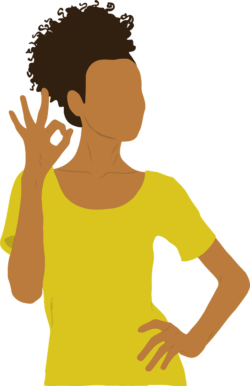OK is probably the most widely recognized word in the world regardless of the native language of a country.
And all of its spellings are OK: okay, ok, O.K.. OK
So where did this useful word come from?
Historian Allan Walker Read researched its origins, which were published in OK: The Improbable Story of America’s Greatest Word by Allan Metcalf, published in 2010. In this definitive book, Metcalf traces it back to an 1839 article in the Boston Morning Post.
There was no Associated Press or other wire services in the 19th century, so newspapers relied on other newspapers they traded copies with for their out-of-town news. And in those quaint days, there just wasn’t as much news, so newspapers added bits of humor and poetry into their pages.
We are all familiar with LOL, BRB, OMG, and other abbreviations that we use in texts. Well, abbreviations are nothing new. One newspaper fad at the time was the use of abbreviations such as i.s.b.d (it shall be done), r.t.b.s (remains to be seen), and s.p. (small potatoes). A New York newspaper in 1839 reported a young woman saying to her male friend “O.K.K.B.W.P.” (one kind kiss before we part).” Bet you haven’t used that one before.
In addition to using quirky abbreviations, newspapers in the 1820s and 1830s liked to use deliberate misspellings for a bit of humor (oh, those journalists!). They turned no use into know yuse, all right into oll wright. No go became know go, and combined with the love of abbreviations became KG. And all correct became, as you might now guess, oll korrect. Abbreviation? OK
And then, to put the icing on the cake, let’s look at the 1840 presidential election. Candidate Martin Van Buren was from Kinderhook, New York, and was given the nickname “Old Kinderhook.” His fans joined “OK Clubs” nationwide, further popularizing the expression.
Some believed that “Old Kinderhook” was the origin of OK. Others believed in all sorts of etymological beginnings of OK, including from the Choctaw word okeh. Other unproven ideas are that OK comes from the Haitian port Aux Cayes, the Louisiana French au quai, a Puerto Rican rum labeled “Aux Quais,” the German alles korrekt, the Scots och aye, the Greek olla kalla, or the Latin omnes korrecta.
But Metcalf says that etymologically, OK has “no direct relationship with Latin or Greek or any other ancient tongue.”
Some interesting tidbits about what Metcalf says is the most frequently spoken (or typed) word on the planet:
- I got a raise!! OK! – An enthusiastic cheer
- This pizza is just okay – Meh
- OK. Let’s move on to the next agenda item – An indication of switching topics

- The doctor okayed me to drive – Even used as a verb!
- Okaaaaaaay or Oooookay – Passive aggressive form
- Okay – What I said when I finished writing this post.
- K – Just plain lazy
- A thumbs up or an O made with the thumb and index or middle finger – Silent OK
- OK was one of the first words spoken on the moon.
- By the 1870s, OK became the standard way for telegraph operators to acknowledge receiving a transmission – it is, after all, shorter than Yes.
- In 1864, OK appeared in the Slang Dictionary of Vulgar Words (doesn’t seem very vulgar).
- One of the most famous self-help books written is Thomas Harris’s book, I’m OK, You’re OK, published in 1967.
- In 1943 Rodgers and Hammerstein called Oklahoma OK: “You’re doin’ fine, Oklahoma! Oklahoma OK.” (L-A-H-O-M-A)
O.K.????
Thanks to the following websites for the information in this post:



What about the one I was taught, no one knowing whether it’s true or not: zero (o) killed (k)?
Agnès
That one too!
And don’t forget Ned Flanders:
okilly dokilly do
Okey dokey! Thanks!
Okay, I think I finally got this. Thanks, Arlene!
OK! Or should I say AOK or okee-dokee!
And the current gamer use “kk” because it is faster on the keyboard.
I didn’t know that! Thanks!